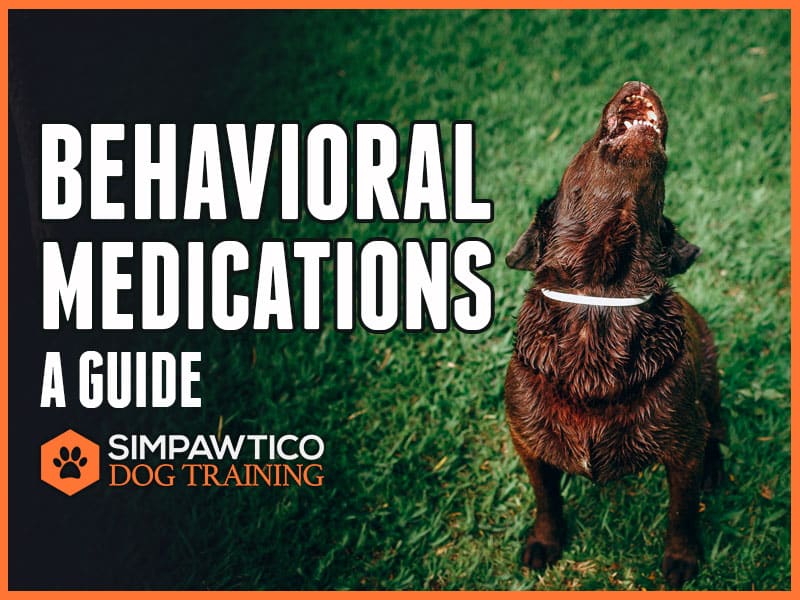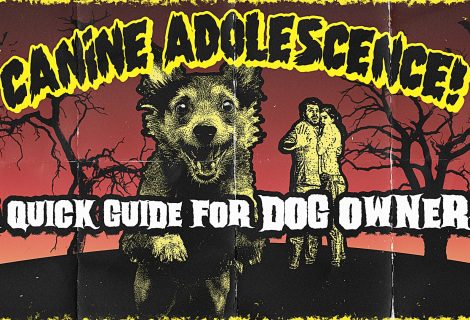Behavior Medications for Dogs: A Guide
As a dog lover, witnessing your furry friend struggle with behavioral issues can be heartbreaking. From anxiety and aggression to compulsive disorders, such problems can significantly impact your pet’s quality of life. Fortunately, various medications are available to help treat canine behavior problems. This guide will provide an overview of the different types of behavioral medications for dogs and their potential risks and benefits.
WHAT CAN DOG BEHAVIOR MEDICATION TREAT?
Behavioral medications are drugs designed to help manage various behavioral problems in dogs. These medications can range from antidepressants and anti-anxiety drugs to sedatives. They work by altering certain chemicals in your dog’s brain, helping reduce the intensity of their emotions, the load on their nervous system, and the stress in their body overall. We have many more inroads for training and behavior modification when they feel calmer and more relaxed.
Medications can help in the treatment of:
- Severe separation anxiety
- Generalized anxiety
- Situational anxiety (i.e., anxiety-inducing situations)
- Fear-based aggression
- Panic disorders
- Chronic hyperarousal
- Noise phobias (like thunderstorms or fireworks)
- Repetitive behaviors (stereotypies—signs of chronic stress)
- And other variations/combinations of the above, ranging from common (but prolonged) issues to full-blown behavioral disorders.
“I DON’T WANT A ZOMBIE!”
Many pet owners are reluctant to use medications to address their dog’s behavior. A common concern revolves around the potential adverse effects of these drugs, as they fear their beloved companions may become lethargic or less responsive due to sedation, resembling a state of being “zombie-like.”
Luckily, this is not the goal of behavior medications; in fact, it’s doubtful to happen. We’re not trying to drug the problem into oblivion!
It is important to note that medications should never be used as the sole approach for managing behavioral issues. Instead, behavior drugs should always be combined with behavioral modification techniques and training.
Our goal is to alleviate the internal pressure on the dog’s system. Challenges such as intense emotional turmoil or persistent sympathetic nervous system activation can hinder training and behavior modification efforts. Dogs facing severe behavioral issues often experience internal dysregulation, which cannot be resolved through training alone.
TYPES OF BEHAVIORAL MEDICATIONS FOR DOGS
The primary type of medication used in behavior is psychopharmaceuticals, also known as psychotropic medications. These are used to treat psychological issues in humans and animals. These drugs target specific chemical pathways in the brain that affect behavior.
Drug Categories
Commonly prescribed psychopharmaceuticals for dogs include:
- Selective serotonin reuptake inhibitors (SSRIs): SSRIs work by increasing the amount of serotonin (a neurotransmitter believed to influence mood and behavior) in the brain. These medications are often prescribed to treat anxiety disorders, compulsive behaviors, and aggression. Examples include sertraline, fluoxetine, paroxetine, and fluvoxamine.
- Tricyclic antidepressants: Tricyclic antidepressants work similarly to SSRIs but act on different neurotransmitters. These medications often treat separation anxiety, compulsive behaviors, and aggression in dogs. Examples include amitriptyline, clomipramine, and nortriptyline.
- Monoamine oxidase inhibitors (MAOIs): MAOIs work by blocking the enzyme monoamine oxidase, which prevents it from breaking down certain neurotransmitters like serotonin and dopamine. These medications are rarely used to treat depression and anxiety in dogs; more often, they’re used for Cushing disease and cognitive dysfunction syndrome.
- Miscellaneous (Atypical) Antidepressants: These nonselective receptor-blocking antidepressants are prescribed when SSRIs or tricyclic antidepressants have proven ineffective. Their mechanism of action offers an alternative approach to addressing treatment-resistant cases. Examples include bupropion, trazodone, and mirtazapine.
Prescription Types
There are further divisions amongst those medications as to how they’re administered:
- As-needed: Some medications can be given as needed in response to specific situations. For example, if your dog has situational anxiety triggered by thunderstorms or fireworks, you may only need to provide them with the medication during those times. Trazodone is a typical example of an as-needed medication.
- Daily medication: Other medications are used daily for long-term relief and control of behavioral issues such as separation anxiety or aggression. These require a “ramping up” period to reach full effectiveness and typically require more frequent monitoring to avoid potential side effects. Fluoxetine is a typical example of daily medication.
- Sedatives: In some cases, sedatives may be prescribed as needed for dogs who experience extreme anxiety or aggression in specific situations. Sedatives effectively calm the dog down quickly and should always be administered under a veterinarian’s guidance (unlike the “as needed” drugs that owners can administer).
Pheromones
Pheromones, or chemosignals, are chemicals released by an animal that can influence the behavior of other animals.
Adaptil (previously known as DAP) is a commonly prescribed pheromone treatment. This synthetic version of the dog-appeasing pheromone reduces anxiety and calms dogs in stressful situations.
As with everything else in this article, pheromones are not intended to solve any behavioral problem; they merely help you get your foot in the door!
POTENTIAL RISKS AND BENEFITS
Behavioral medications are safe and effective when used as directed. Behavioral drugs can significantly improve your dog’s ability to cope with stress and anxiety, improving their behavior and well-being.
However, like all medications, they also have potential side effects. These can range from mild symptoms like drowsiness or changes in appetite to more severe effects such as vomiting, diarrhea, or behavioral changes. Like all drugs, there are also contraindications (reasons not to take a drug) that your vet will consider. Every dog is an individual—just like people—and will respond slightly differently. However, veterinary medicine has come a long way in developing safe and effective medications for our canine friends.
Many benefits are associated with behavioral medications for dogs. These medications can help reduce anxiety, improve mood, and reduce aggression. They may also help address specific behavioral problems such as separation anxiety or compulsive behaviors.
WORKING WITH YOUR VET
Talk to your behaviorist or behavioral consultant if your dog has behavioral problems. A savvy professional can resolve many “behavior problems” like aggressive behavior and severe fear without behavioral drug therapy.
However, your vet should always be part of this conversation. For challenging or prolonged cases, they can help you decide if a medication is necessary and discuss which may work best for your pet. Medications don’t have to be permanent; some may be used for short-term relief while you work on training and other interventions.
Your vet should also monitor your pet regularly to ensure the medication works correctly and your dog is not experiencing any severe side effects. Never adjust the dosage without consulting a veterinarian first—it’s best to let them decide what’s suitable for your dog!
BEHAVIOR MODIFICATION IS A TEAM SPORT
We’ve said this multiple times, but it bears repeating: behavioral medications are just one piece of a larger puzzle when treating behavior issues in dogs. In addition to medications, behavior modification training, and environmental enrichment will also be necessary to help your pet reach their full potential. Please consult a qualified behaviorist, certified behavioral consultant, or veterinary behaviorist to figure out the best approach for addressing your dog’s needs.
Any behavior modification plan should involve ongoing communication and teamwork between the owner, vet, and behaviorist or consultant. Each of these (including YOU!) has unique insights about the dog that help paint a complete landscape together.
- Medication options should help the effectiveness of behavior modification.
- The veterinary and behavioral work should be recursive, informing one another as treatment progresses.
- Both veterinary and behavioral protocols should be clear and easy for pet parents.
- Communication between all parties should be open, judgment-free, and goal-oriented.
If you’re lucky enough to have access to a veterinary behaviorist, you’ve got two team members rolled into one!
No matter what, cultivating a team effort and following an appropriate treatment plan can help your dog live their best life!
A FREE BEHAVIOR MEDICATION PDF
Behavior medication can be a valuable tool in managing behavioral issues in dogs. However, it’s crucial to use them responsibly and under the guidance of a veterinarian. If you’re considering this route, we have a free PDF guide that dives deeper into the world of canine behavior medications. Prepared by some of our veterinary colleagues, this highly informational handout will help you understand the when, what, and how of using medication in behavioral modification (4.9 MB, PDF): Behavior Medications
RESOURCES
Here is a list of relevant links that may help you in your journey. These are also included in the PDF.
Find certified behaviorists and behavioral consultants:
- The International Association of Animal Behavior Consultants: this is their online search. Put your zip code and find Certified Dog Behavior Consultants (CDBC). Simpawtico’s Ian Stone is a CDBC.
- The Certification Counsel for Professional Dog Trainers: this is a similar online search. Look for a Certified Behavior Consultant, Canine, Knowlege Assessed (CBCC-KA). You may also be able to use a skilled Certified Professional Dog Trainer, Knowledge Assessed (CPDT-KA). Both Ian and Hannah of Simpawtico are CPDT-KA.
- The Academy for Dog Trainers: another online search engine. The Academy for Dog Trainers was started by world-famous behaviorist and trainer Jean Donaldson. Graduates are robust and savvy.
Find a veterinary behaviorist:
- The American Veterinary Society of Animal Behavior: we’ve previously linked to much of this organization’s material. This online search will help you find one of their “diplomates.”
Other Useful Resources:
- Vetster: an excellent veterinary telehealth hub. Online pet care, anytime, anywhere.
- C.A.R.E. for Reactive Dogs: a user-friendly online template to begin treating reactivity in dogs.
- I Speak Dog: a great primer for learning the nuances of canine body language. If you don’t know how to interpret your dog’s signals, you’re behind the eight-ball!
CONCLUSION
Overall, there is no one-size-fits-all solution to treating behavioral issues in dogs. However, understanding the different behavioral medications available and their potential risks and benefits can help you decide on your pet’s best course of action. You can help your canine companion live a happy and healthy life with the proper medication and support.
There are medications available that can help no matter what type of behavior issue your pet is struggling with. It is essential to talk to a veterinarian or certified animal behaviorist before starting any medication for your dog. With the proper medications, support, and training, you can make life easier and more enjoyable for you and your four-legged friend!
P.S. Remember to download the free PDF guide today. Let’s work together to ensure our furry friends lead happy, healthy lives.


















Thanks Ian, it looks like a ton of useful info in there. Iv wondered what medications were available for problem dogs. There are many days id love to highly medicate PUCKER. I’d like to think he just needs patience and work but this boy is the most defiant dog iv ever had by far. He is probably going to break me long before I could ever break him. He has a extremely strong spirit and I think its demon lol.
Thanks, be safe and take care.